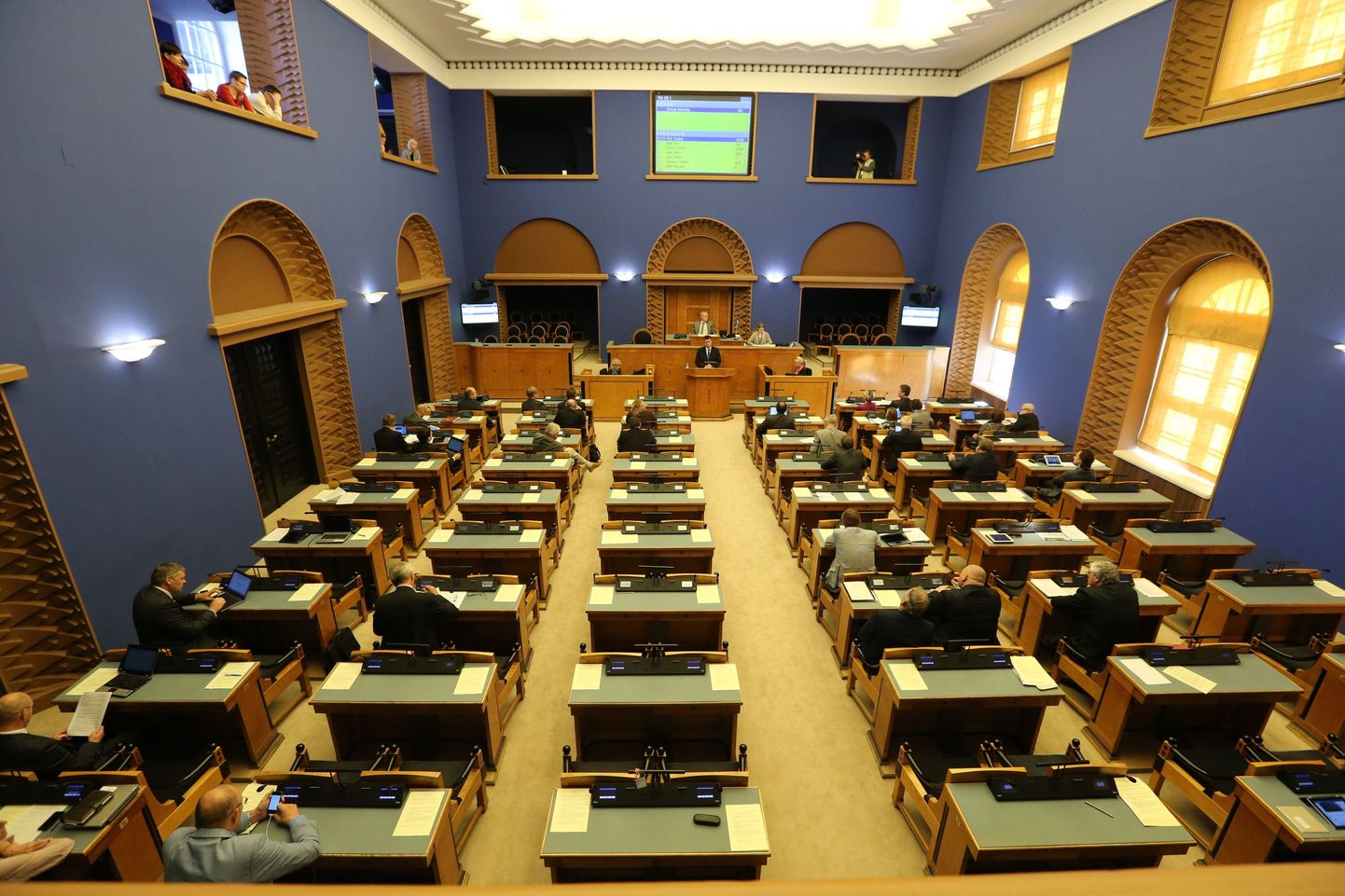
The bill was initiated in mid-April as signed by 40 MPs. By now, all factions are represented after Aivar Riisalu swapped Centre Party for IRL. All factions claim their MPs have free hands at tomorrow’s voting.

The bill was initiated in mid-April as signed by 40 MPs. By now, all factions are represented after Aivar Riisalu swapped Centre Party for IRL. All factions claim their MPs have free hands at tomorrow’s voting.
Against-votes will be coming from IRL, but that’s not excluded even with Reform Party and soc dems – engines of the bill. From Reformers, Igor Gräzin has stated decisively to be against, in soc dem ranks a couple of names are being circulated including Rainer Vakra. Both sides are represented in Centre Party.
Majority needed, enthusiasts of said bill have strongly suggested their MPs, if unable for conscience sake to vote for – don’t vote against. And already we are hearing of the conscience voters scrambling to plan official trips a day early, for instance – thus to sneak from voting.
Hindsight wisdom abounds this week, after the many public demonstrations. Why didn’t we get the bill ratified in spring, as the popular resistance now is frightening? But then it was also frightening this spring, with thousands of angry letters hitting Riigikogu inboxes, along with many voicing support. Already then, however, several of the greatest activists of the bill pulled brakes, intimidated, and begun to think of their votes tally at upcoming elections.
All of that was referred to by the IRL chief Urmas Reinsalu at Riigikogu yesterday, as he submitted bill for the law to undergo referendum. He promised IRL would waive the referendum if the process takes a time out. As referred by Mr Reinsalu, Riigikogu has faced controversies before, but this time the public discussion and confrontation of opposing sides is unprecedented.
«This confrontation which has appeared and deepened is not a good confrontation. It is troubling that a law which supposedly is meant to increase tolerance in the society, has in reality led to a serious feud among the nation of Estonia,» said Mr Reinsalu. «Thus, the way the law is processed and the problem posed are not directed towards tolerance in the society.» Mr Reinsalu expressed conviction it is, at these complicated times, important to seek for common ground, rather than concentrating on dividing the society.
He was opposed by many. Soc dem Jaak Allik said the division would spread wider till March 1st according to IRL proposal to allow the public to be probed on the issue – parallel to Riigikogu elections. «Do you imagine the society would proceed stronger after a referendum? There’d then also be a majority and minority,» said Mr Allik.
Barbi Pilvre of the same party said the law is unifying, not divisive, one granting equal rights to the 4 to 10 percent minority and «integrating» the society.
By Centre Party’s Priit Toobal, Mr Reinsalu was advised to do some more discussing inside his party. «As announced today by vice chairman of your party Eerik-Niiles Kross, he is for the bill; as are Tallinn city council member Yoko Alender and your star candidate at elections Anvar Samost. Maybe it’s better to take time out inside the party and discuss the issue?» advised Mr Toobal.
Mihhail Stalnuhhin, also a Centrist, ironically said he had tears in his eyes as Mr Reinsalu spoke. «Solidarity, tolerance, a place under the sun, integration of the society. Where’s all that terminology when we speak about another minority, the national minority, of the Russian gymnasiums? Why aren’t you so noble, so tolerant, so solidaristic?» Mr Stalnuhhin asked Mr Reinsalu.
Valdo Randpere (Reform Party) wondered why IRL had not come up with proposals of amendment till September 12th, in due time.
Soc dem Marianne Mikko asked Mr Reinsalu: «What does your sound mind tell you regarding cohabitation act, as leader of a party in EU in 21st century, 2000 years after Christ?»
Today, the parliament will hear report by legal committee chairman Neeme Suur (soc dems), followed by questions-answers and remarks by MPs. Thereafter, the full house will probably have to vote at least on some of amendments proposed.
If all goes as expected, legal committee will propose ending of second reading, with the final vote coming tomorrow. If ratified, the law enters force on January 1st 2016.